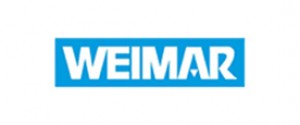

Weimar Enterprise Sdn Bhd
Eco-Products & Services Environmental Engineering Environmental Management / Consultancy
In its incubation stages, Weimar Enterprise Sdn Bhd (WEIMAR) solely concentrated on the collection of organic waste from the food and beverage (F&B) industry, which would have otherwise caused irreversible contamination to the local water supply.
Statistically, organic waste (such as expired food) dumped in landfills releases Methane gas (CH4) over a long period of time, which is a leading contributor to climate changes.
Hence, the compilation of organic waste in the form of fat, oil, grease, meat, bones, vegetables and fruit fragments then prompted the company to further expand its business operations by creating compost out of the waste food in a controlled environment which prevents the release of Methane gas.
Similarly, the fat, oil and grease collected in the Upstream process would also be converted into reusable biodiesel for machinery and vehicles on the road.
Following the success of rehabilitated solid food waste; WEIMAR is now researching on a creating a municipal-level Sustainable Production (SP) cycle. This includes studying the potential of self-made organic composts on castor oil plantations as well as on local vegetable and fruit farms.
The Biomass Industry is foreseen as the main solution to averting the Food vs. Fuel Crisis as organic, renewable fuel is used to nurture and grow crops at plantations. In the long term, this industry will not only create an abundance of sustainable resources for the future generations but will also reduce production costs as well.
Ultimately, the Company aims to integrate three business models into one sustainable business cycle, which consists of three components:
The Upstream Industry where food waste including oil, grease and fat is collected from businesses such as restaurants and slaughterhouses
The Middle-stream Industry where food waste and used cooking oil collected from the Upstream is then recycled into useful products such as compost and biodiesel
The Downstream Industry, which involves cultivating plantations grown from the compost created in the Middle-stream Industry.
Other efforts to reduce the Company's carbon footprint includes On-Site Organic Waste Composting, which means that the collection and processing of the food waste is performed on the same location to save on transportation costs. Similarly, WEIMAR also offers Household Composting Units for household and personal use as well.
In the long term, WEIMAR aims to create a complete waste cycle that can reduce carbon emission and also improve sustainable production via the Agriculture industry.

